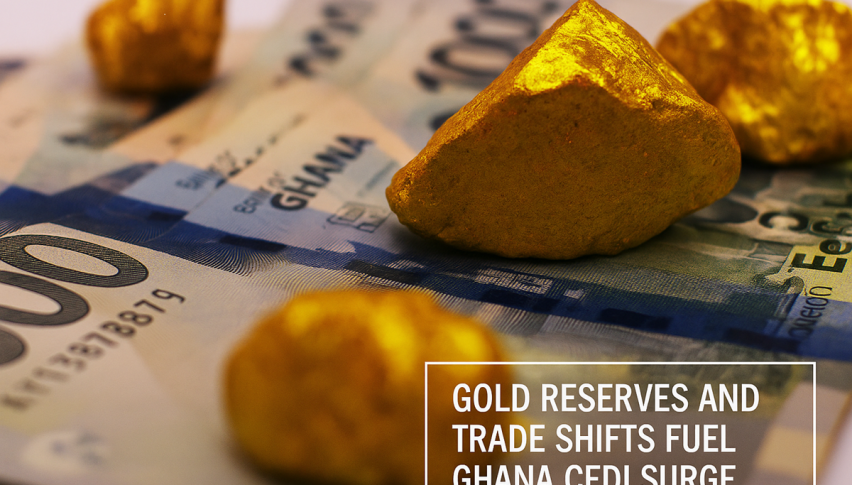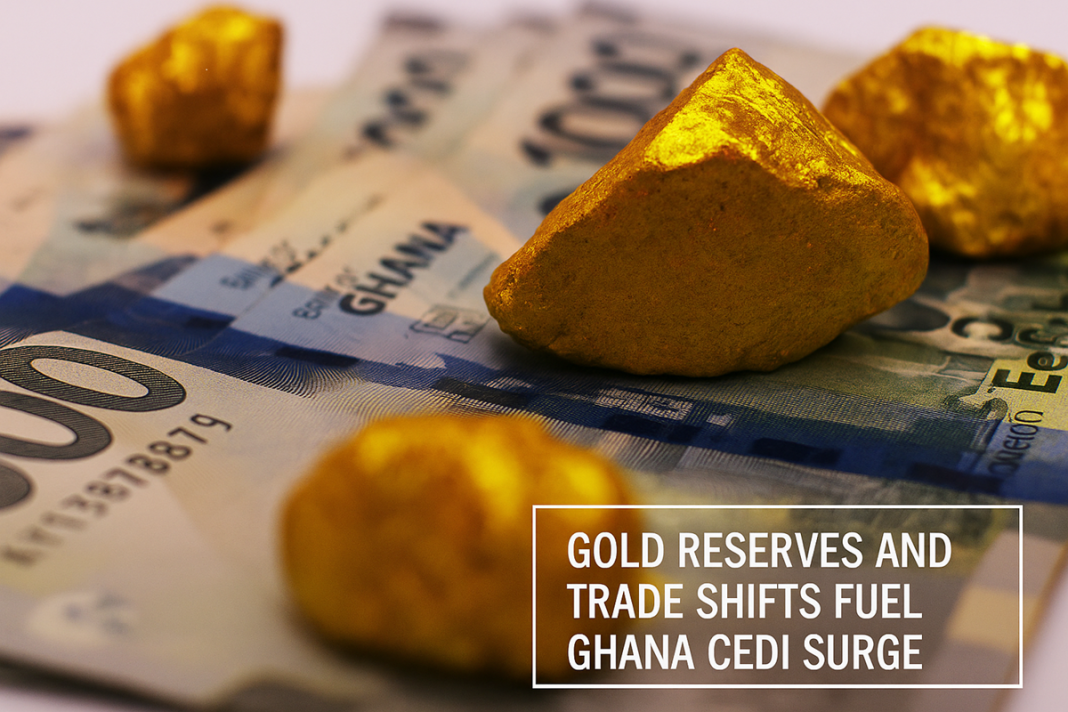
Quick overview
- Ghana’s cedi has rebounded nearly 20% since mid-April, trading at GHC12.35 per dollar after years of depreciation.
- The currency’s surge is attributed to increased gold reserves and new agreements with mining companies to purchase gold in local currency.
- Global market dynamics, including easing US-China trade tensions and favorable interest rate comments, have also contributed to the cedi’s strength.
- Despite the positive momentum, Ghana faces structural vulnerabilities that could threaten the sustainability of this currency appreciation.
Ghana’s national currency Cedi sees a significant rebound, driven by improved sentiment, gold accumulation, and trade policy shifts.
Market Reversal Signals Fresh Momentum
After years of gradual depreciation against the US dollar, the Ghanaian cedi has recently made a dramatic turnaround. According to the latest data from the Bank of Ghana, the cedi has surged nearly 20% since mid-April, trading at GHC12.35 per dollar—down from GHC15.50 during the same month.
This rebound is even more striking when compared to the record high of USD/GHS 16.42 reached at the end of 2024. On the weekly chart, the USD/GHS pair had enjoyed long-term bullish momentum, supported by the 50-week simple moving average.

That trend was decisively broken in late April, triggering a rapid drop in the pair as the cedi strengthened sharply—even outperforming other global currencies, despite a broader US dollar rebound.
Catalysts Behind the Currency’s Surge
The appreciation in the cedi is being driven by both domestic initiatives and global shifts. Ghana’s expanded gold-for-reserves strategy has played a pivotal role. By the end of April 2025, Ghana’s official gold reserves had risen to 31.37 tonnes, up sharply from previous years. This increase in reserves has helped reduce dollar demand, curtail speculative activity in the forex market, and boost overall investor confidence in the country’s macroeconomic strategy.
Complementing this, the Ghanaian government has secured new agreements with nine additional mining companies. Under these deals, the government purchases 20% of their gold production in local currency, with exporters required to convert that portion of their foreign proceeds into cedis. This has added consistent supply to the forex market, reinforcing the local currency’s newfound strength.
Broader Market Dynamics at Play
The rebound in the cedi also coincides with an uptick in global risk appetite. A temporary easing of US-China trade tensions earlier in the year helped reduce tariffs significantly—from 145% to 30% in some cases—spurring capital flows back into emerging markets. Ghana, as a developing economy with strong commodity assets, has benefited from this shift in investor sentiment.
Additionally, comments from international policymakers favoring interest rate cuts and a soft US inflation report have driven broader demand for riskier assets, including Ghana’s currency and sovereign bonds.
Economic Impacts and Lingering Caution
The strengthening of the cedi is a welcome relief for Ghana’s economy, which has been strained by high inflation, rising debt, and weakening external reserves in recent years. A stronger currency could help lower the cost of imports, ease inflationary pressure, and stabilize household purchasing power. Businesses, too, may benefit from reduced exchange rate volatility, allowing for more predictable cost structures and investment planning.
However, structural vulnerabilities remain. Ghana continues to grapple with significant external debt obligations, low tax revenue as a percentage of GDP, and a reliance on commodity exports, making the economy susceptible to global price swings. While the current currency appreciation is encouraging, it could prove short-lived if these systemic issues remain unaddressed.
Conclusion
Ghana’s cedi has shown unexpected resilience, gaining 20% in just one month due to a combination of strategic gold accumulation, supportive trade developments, and favorable global sentiment. While this rally has brought short-term relief to inflation and import costs, it also underscores the need for sustained reforms to ensure long-term economic and currency stability. The coming months will reveal whether this rebound marks a fundamental turning point or simply a pause in the cedi’s longer-term struggle.netary Policy: Ghana Leverages Gold to Stabilize Economy
